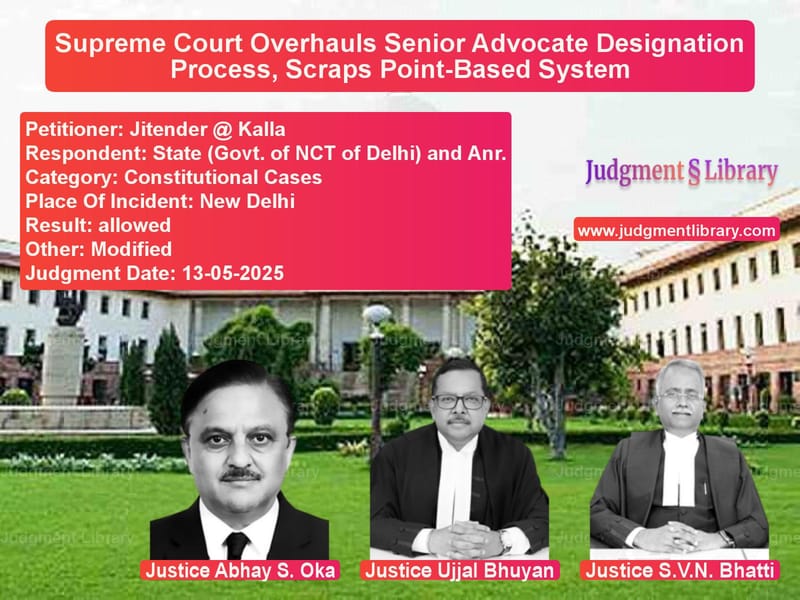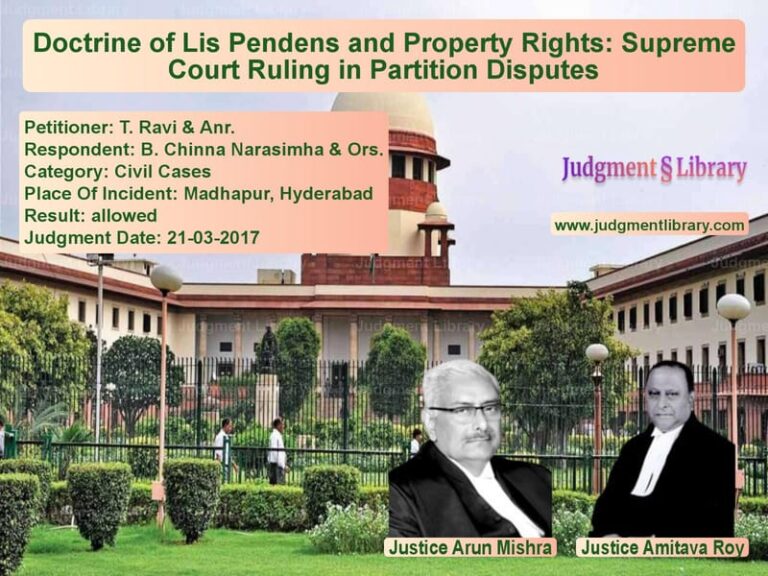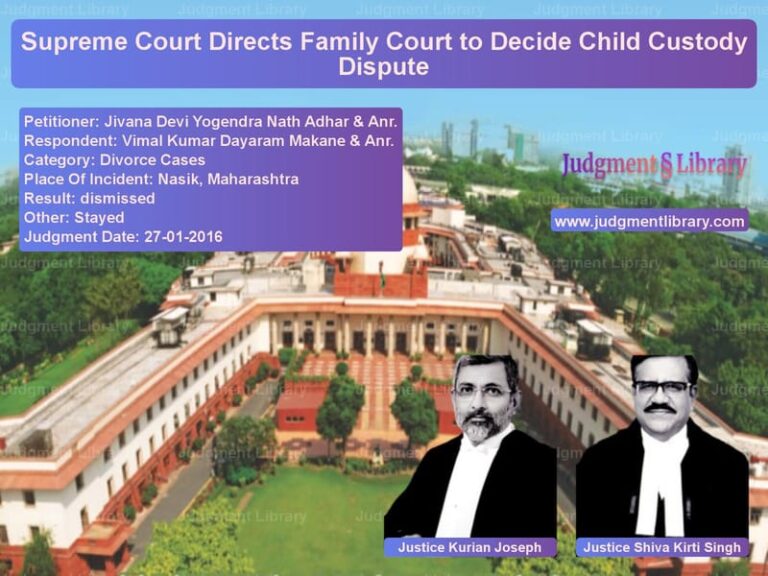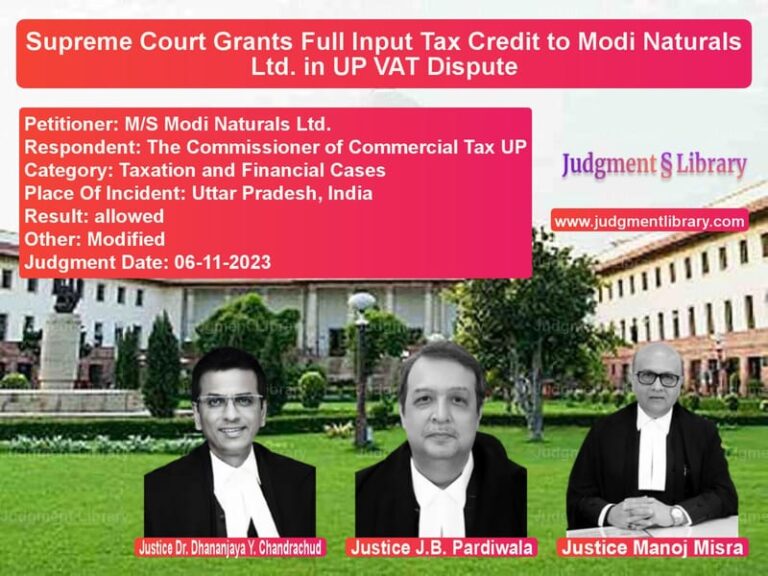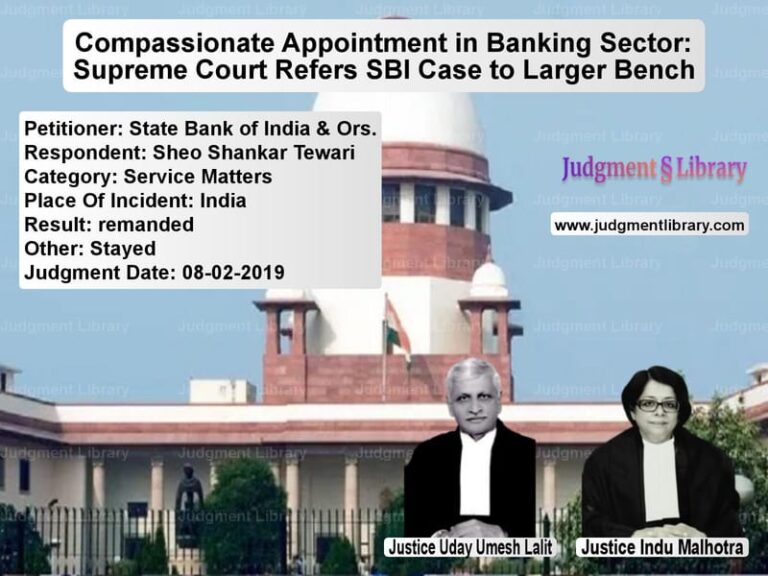Supreme Court Overhauls Senior Advocate Designation Process, Scraps Point-Based System
In a landmark judgment that fundamentally reshapes how lawyers are designated as Senior Advocates in India, the Supreme Court has scrapped the controversial point-based assessment system that had been in place since 2017. The decision came after extensive deliberations revealed significant flaws in the current process, with the Court acknowledging that the system had failed to achieve its intended objectives of objectivity and transparency. The ruling marks a pivotal moment in the legal profession, addressing long-standing concerns about the designation process that determines which advocates receive the prestigious ‘Senior Advocate’ title.
The case reached the Supreme Court through an unusual route. It began with a criminal appeal filed by Jitender @ Kalla, but during the proceedings, the Court noticed serious issues with the conduct of a recently designated Senior Advocate. This prompted deeper examination of the designation process itself, leading the Court to question whether the systems established in the earlier Indira Jaising cases were working effectively. The Court expressed its concerns in clear terms: “We are recording our concerns based on submissions made across the Bar. We again reiterate that we mean no disrespect to the two binding decisions, and we are recording our concerns only to enable the Hon’ble Chief Justice of India, to decide whether the doubts expressed by us need consideration by an appropriate larger Bench.”
The Statutory Foundation
At the heart of the matter lies Section 16 of the Advocates Act, 1961, which creates two classes of advocates: Senior Advocates and other advocates. The provision states that “An advocate may, with his consent, be designated as Senior Advocate if the Supreme Court or a High Court is of opinion that by virtue of his ability, standing at the Bar or special knowledge or experience in law he is deserving of such distinction.” The Court carefully analyzed this statutory framework, emphasizing that the criteria of ability, standing at the Bar, and special knowledge or experience in law must remain the cornerstone of the designation process.
The Court provided detailed interpretation of these criteria, noting that “ability will include very sound knowledge of law and especially the branches of law in which the Advocate is practicing. The ability will also include, apart from sound knowledge of law, skills of advocacy, which are required to effectively conduct a case.” Regarding standing at the Bar, the Court explained it’s not merely about years of practice but encompasses qualities like “integrity, respect, confidence, dependability, honesty, communication skills, confidence and commitment to administration of justice and rule of law.”
The Flawed Point-Based System
The Court identified multiple problems with the 100-point assessment system introduced in the Indira Jaising case. One major concern was the allocation of points based solely on years of practice, where advocates received 10 points for 10-20 years of practice and 20 points for practice beyond 20 years. The Court questioned this approach, observing that “Only the number of years spent in practice cannot be a major criterion for designation by any stretch of imagination. Let us test with an example i.e. a member of the Bar, who has not performed or is not up to the mark, can get 20 points out of 100 only on the ground that he or she has continued to be a member of the Bar for more than 20 years.”
The interview process, which carried 25 points, also came under severe scrutiny. The Court questioned “whether by interviewing a candidate for a few minutes, his personality or suitability can be really tested. 25 points out of 100 are assigned for interview/interaction, constituting 1/4th of the total points.” The Court went further to state that “subjecting an Advocate having standing at the Bar to interview by three senior-most Judges and two senior members of the Bar violates the dignity of the noble profession.”
Practical Implementation Challenges
The judgment highlighted the practical difficulties faced by Permanent Committee members in implementing the point-based system. The Attorney General of India, who served on the Supreme Court’s Permanent Committee, frankly admitted that “it was not possible for him to peruse the entire material submitted by applicants, such as books, articles, reported judgments, etc., as it was very voluminous.” This candid admission underscored the impracticality of expecting committee members to thoroughly evaluate hundreds of pages of material for each applicant.
The Court also noted the impossibility of properly assessing the 50 points allocated for judgments and legal formulations, stating that “It is very difficult to assess whether the submissions recorded in the Judgments are made by that particular Advocate, even if his name appears in the Judgment, unless the judgment specifically mentions that a particular submission was made by the named Advocate.” Similarly, the Court questioned whether written submissions truly represented an individual advocate’s work, noting they might be “a collective effort by a team of Advocates.”
Stakeholder Perspectives
The Solicitor General of India argued strongly against the current system, contending that “Section 16 of the Advocates Act does not envisage splitting the Full Court into smaller bodies. Instead, it provides for conferment of distinction by a collective body based on criteria laid down in the provision.” He also raised serious concerns about the marks system, pointing out that “the marks system provides for awarding up to 25 marks based on the interview or interaction, but does not include any provision to deduct marks for professional misconduct.”
Ms. Indira Jaising, appearing as petitioner-in-person, defended the system she had helped establish but acknowledged room for improvement. She admitted that “there is no provision for awarding lower marks for lack of integrity” and suggested that “the weightage of marks given to an interview can be reduced and marking on integrity be explicitly included.” She advocated for transparency, suggesting that “cutoff marks should be declared after results, or even before the interview to determine where one stands.”
Various High Courts also contributed their perspectives. The High Court of Karnataka emphasized that “the object of designation is to mentor junior members of the Bar, to assist the Court in cases in an unbiased manner, and to project to the Bar that honesty, integrity, erudition and learning matters.” The High Court of Madhya Pradesh called for “more transparency in the selection process by publishing the evaluation criteria, applications, and reasons for selection or rejection in the public domain.”
The Court’s Fundamental Rethinking
The Court engaged in fundamental rethinking of the entire designation philosophy. It questioned the very premise of applications for designation, noting that “the scheme of Sub-section (2) of Section 16 indicates that designation has to be conferred by the Supreme Court or the High Courts” rather than sought by advocates. However, recognizing practical realities, the Court decided that “the practice of making a formal application can be continued. An Act of making application will amount to consent of the Advocate for being considered for designation.”
One of the most significant aspects of the judgment is its emphasis on inclusivity. The Court strongly advocated for recognizing excellence across all levels of the judiciary, stating that “The designation as a Senior Advocate cannot remain the monopoly of the Advocates practicing in High Courts and this Court. If the designations are conferred only to the Advocates practicing in High Courts and this Court, Section 16(2) will be exposed to the vice of arbitrariness which is prohibited under Article 14 of the Constitution.” The Court specifically highlighted that “Advocates practicing before Trial and District Courts or specialized Tribunals can possess qualification laid down in Section 16(2).”
The New Framework
In its conclusive findings, the Court directed that “the directions contained in paragraph 73.7 of Indira Jaising-1 as amended by Indira Jaising-2 shall not be implemented” and instructed all High Courts to frame new rules within four months. The new framework emphasizes that “The decision to confer designation shall be of the Full Court of the High Courts or this Court” and that “Minimum qualification of 10 years of practice fixed by Indira Jaising-1 needs no reconsideration.”
The Court also addressed the contentious issue of secret ballots, ruling that “Whether in a given case there should be a secret ballot, is a decision which can be best left to the High Courts to take a call considering facts and circumstances of the given case.” Importantly, the Court mandated that “At least one exercise of designation should be undertaken every calendar year,” ensuring regular opportunities for advocates to be considered.
Acknowledging Contributions and Looking Forward
In a gracious acknowledgment, the Court complimented “each and every member of the Bar who has assisted us” and specifically recognized Ms. Indira Jaising’s role, stating that “She must be given full credit for starting a constructive debate on the issue. We hope and trust that her endeavour of bringing about objectivity and transparency in the process of designation succeeds.”
The judgment represents a significant course correction in the designation process for Senior Advocates. By scrapping the problematic point-based system and returning decision-making to the Full Court, while maintaining important elements like the Permanent Secretariat and annual designation exercises, the Court has attempted to balance tradition with reform. The emphasis on inclusivity, diversity, and recognition of excellence across all court levels marks a progressive step toward a more equitable and transparent designation process that truly identifies the most deserving members of the legal profession.
As the legal community absorbs the implications of this sweeping judgment, the focus now shifts to how individual High Courts will implement the new framework. The four-month timeline for framing new rules sets the stage for what promises to be an intensive period of consultation and rule-making. The ultimate success of this reform will be measured by whether it achieves the Court’s stated objective: ensuring that “not a single deserving Advocate is left out of the process of designation and not a single undeserving person is designated.”
Petitioner Name: Jitender @ Kalla.Respondent Name: State (Govt. of NCT of Delhi) and Anr..Judgment By: Justice Abhay S. Oka, Justice Ujjal Bhuyan, Justice S.V.N. Bhatti.Place Of Incident: New Delhi.Judgment Date: 13-05-2025.Result: allowed.
Don’t miss out on the full details! Download the complete judgment in PDF format below and gain valuable insights instantly!
Download Judgment: jitender-@-kalla-vs-state-(govt.-of-nct-supreme-court-of-india-judgment-dated-13-05-2025.pdf
Directly Download Judgment: Directly download this Judgment
See all petitions in Fundamental Rights
See all petitions in Constitution Interpretation
See all petitions in Public Interest Litigation
See all petitions in Legal Malpractice
See all petitions in Other Cases
See all petitions in Judgment by Abhay S. Oka
See all petitions in Judgment by Ujjal Bhuyan
See all petitions in Judgment by S.V.N. Bhatti
See all petitions in allowed
See all petitions in Modified
See all petitions in supreme court of India judgments May 2025
See all petitions in 2025 judgments
See all posts in Constitutional Cases Category
See all allowed petitions in Constitutional Cases Category
See all Dismissed petitions in Constitutional Cases Category
See all partially allowed petitions in Constitutional Cases Category

